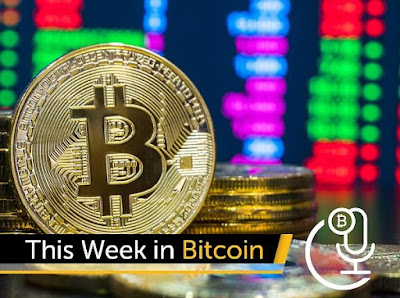Fed Chair Concerned About $22 Trillion US Debt, is Bitcoin a Viable Alternative?
In retrospective, the national debt is a way of measuring what the US government owes to its creditors.
Since the government always spends more than what it takes, the said debt continues to rise. For instance, under the Obama administration, the national debt had increased from $10 to $20 trillion – a spotless 100 percent. In the past 60 years, the US government has struggled to balance the budget – by spending and earning at an equal level.
Every passing administration left a higher debt burden for the next, starting with President Ronald Reagan via President Clinton to President Obama. The US never came out of the so-called debt bubble.
But it doesn’t necessarily mean that they cannot. After all, the US is sitting atop a dollar printing press. Ideally, Uncle Sam can print its own money, unlike other nations.
The size of their debts – arguably – does not matter because the government can pay its debt any day it wants. They would not have to impact the standard of living. According to the Bretton-Woods agreement, the World Bank and the IMF made US Dollar as the world’s only global reserve currency.
That led governments across the globe to stash the greenback in their central banks.
It created demand, and the US Federal Reserve limited supply. As of now, there are approximately 1.2 trillion US Dollars in circulation. That is not enough to settle day-to-day global trades: to purchase oil, gas, coffee, corns, and even iPhones. Countries, on the other hand, are sitting atop larger dollar reserves. China, for instance, has $4 trillion; Japan has over $1 trillion – and so on.
Why Bitcoin? The only thing that changed between then and now is the internet.
The millennials now have information about the debt bubble.
They understand how every dollar in their pocket is indebted.
They also realize that their own national currency is indebted to an-already indebted US Dollar. Bitcoin enthusiasts project the digital currency as a solution to beat down the dollar hegemony.
It expects millennials to exchange their national fiats for a technology that is independent of the US debts, government policies, Federal rate hikes, and whatnot.
Vinny Lingham, the founder of Civic, said that bitcoin’s intrinsic attractiveness against the debt bubble would attract more wealth. “More wealth will be created in crypto over the next 10 years, than over the prior 10 years,” said Lingham. But remember, like any success story, it’s not going to be a straight line up. Keep believing and just be patient.
” Erik Voorhees, the founder of Shapeshift, hoped that the world would hedge their savings into bitcoin once the next financial crisis hits.
Follow me on
Twitter: https://twitter.com/cryptoexpert20





Comments
Post a Comment